O seu carrinho está vazio!
Children of Thot (digital)
Two young emissaries from Egypt, a star scholar and a heart healer, set out to bring their wisdom to distant peoples. Through kingdoms with radically different beliefs, they discover that true knowledge is listened to, shared, and adapted. An initiatory journey where ancient wisdom meets the diversity of the world, and where balance becomes the highest form of truth.
2.99 €
GiveaBook.shop
Descrição
Sent by the Temple of Philae, Hor-Ka, the star mapmaker, and Merytnout, the soul healer, leave the familiar shores of the Nile for an extraordinary mission: to bring the wisdom of Egypt beyond its borders.
Through
the Aegean Sea, the colorful palaces of Crete, the salted deserts of Babylon, and the Hittite fortifications, they discover worlds where the gods speak in other languages, where power is asserted through fear or spectacle.
Armed with their sacred knowledge—measuring the sky and the listening of the heart—they learn that true wisdom lives in dialogue, in the patient translation from one world to another. To each people met, they offer the harmony of Ma’at, this living balance between men, the gods and the world, woven with respect and listening.The Children of ThothIt is an initiatory story where the encounter with the other becomes a mirror of oneself, and where every step towards the unknown forever transforms the one who walks.
Informação adicional
| Number of page | 46 |
|---|
Apenas clientes com sessão iniciada que compraram este produto podem deixar opinião.
Chapter 1: The Promise of Lapis Lazuli
Philae, twenty floods after the birth of the twins, no longer breathed only the ancient wisdom; it pulsed with a new youth. The temple stones, polished by centuries and prayers, seemed to radiate the perfect harmony of Ma’at, that cosmic balance which every priest, every plant, and every stone strove to create.
Hor-Ka, kneeling on the slabs warmed by the morning sun, gazed at the column before him. He read it, feeling within it the quiet strength of the Djed pillar, the backbone of Osiris, that promise of stability amidst chaos. His finger traced the lines of force, like a scribe seeking the divine thought that ordered matter. “All that endures,” his father, Khnoumhotep, had taught him, “is a balance between weight and momentum.” Hor-Ka, heir to logic and structure, sought this balance everywhere, convinced that true power was to make real, here below, the perfect order of the world above.
A scent of jasmine and damp earth drew him from his concentration. He had no need to turn around.
“If you keep trying to make this column more perfect than it already is, it’s going to get offended,” said a soft, teasing voice.
Merytnout stood behind him, a linen basket filled with medicinal herbs on her arm. Her hands, unlike those of her brother who sought the perfection of the line, were covered in earth and flower pollen. She had returned from the gardens where she had gathered, and conversed with the Ka, the life force of each plant. She had asked the herbs to share a fragment of their Ankh, their life, to ease the fever of a young apprentice. That was the entire legacy of her mother Ipy: knowing that healing is not an act of power, but a restored harmony.
Hor-Ka stood up and smiled. “Perfection is never achieved; it happens at every moment. It’s you who disturb it with your songs.”
Merytnout burst into a crystalline laugh that sent a flock of sparrows flying. “My songs don’t disturb the order, brother. They remind the stone that it is alive.”
She took his arm, their complicity an evident thing. They were duality made flesh: he, the Djed pillar, the stable structure; she, the breath of life that connects things together. Together, they formed a coherent whole, a synthesis.
Their banter was interrupted by a presence whose silence had the density of a stone falling into a well. Nebamon stood at the entrance to the courtyard. He carried within him the history of the temple: his body was that of a man who had struggled against the currents of the Nile and those, even more violent, of his own jealousy. Former rival of their father, he had become the keeper of trials, and his weathered face never smiled, for trials have no place for lightness. Yet, in his gaze fixed upon them, there was no harshness. It was a frank recognition, the consideration of a veteran for two young soldiers returning from their first battle, their hearts and minds laden with invisible scars and trophies. His gaze upon the twins was tinged with deep respect.
“The Vizier’s barge has docked, and the High Priest requests your presence,” he said simply.
The atmosphere instantly froze. They crossed the temple courtyards, their steps growing heavier on the slabs, each echo seemingly stripping them a little more of their carefreeness. The great hypostyle hall swallowed them in its stone forest. Monumental columns, like giant trees, rose in a sacred gloom, barely disturbed by the oblique beams of light that fell from the claustras, turning the dust into floating gold. The air was cooler there, laden with the scent of cold incense and the eternity of stone.
There, at the heart of this suffocating silence, the Vizier awaited them. His age was such that his face seemed carved like the dry bed of a river, each wrinkle bearing the memory of a flood or a drought. His gaze carried the fatigue of all Kemet. At his feet rested two objects whose simplicity contrasted with the majesty of the place: a cedar box whose resinous scent permeated the air, sealed with a linen thread and a clay seal, and beside it, a papyrus case modestly adorned with the Eye of Horus, which seemed to watch over its contents.
“Hor-Ka, son of Khnoumhotep. Merytnout, daughter of Ipy,” the Vizier began. His voice, though low, echoed through the hall, its weight palpable, each word heavy with centuries of history. “The Pharaoh, may his life be eternal and prosperous, has seen in you more than a legacy. He has seen a possibility. And true power, you know, is to make possibilities real.”
He paused, appraising them with a gaze that seemed to pierce beyond their youth, reaching the souls of their parents. “Peace with the great city of Babylon is a fragile thing, like papyrus in the wind. We want to transform it into Ma’at, solid like these columns. The Pharaoh wishes to build a strong bridge of knowledge, a passageway for our peoples to better perceive and enrich each other with their respective wisdom.”
He gestured to the papyrus case, the dark leather absorbing the light. “Here lies the thought of Kemet, the wisdom of Thoth. The maps of the stars that reflect our world, the measure of time that orders chaos. You will carry the framework of our world.”
Then, his parchment-like hand rested upon the cedar box, in a gesture of infinite reverence. “And here, its beating heart. Seeds of the Blue Lotus of Philae, that which opens the mind and connects souls. You will carry the life of our world.”
The weight of the mission seeped into them, thickening the air they breathed and making the hall suddenly oppressive. It was a crucial mission: they had to create Ma’at, bring it to life on a foreign land.
“You will be the voice and heart of Kemet,” concluded the Vizier. “Depart in three days. Show them that our greatness is not a force that imposes itself, but a harmony that offers itself.”
The Vizier withdrew, his sandals gliding silently over the slabs, leaving them alone in the deafening silence of the hall. Hor-Ka approached the gifts, his mind already mapping out a journey unfolding, calculating the stages of the voyage, the dangers, the logistics. He felt the responsibility of representing Thoth, the precision of the great principles carved in stone, and the weight of that case was already that of an entire empire on his shoulders.
Merytnout, for her part, gently placed her hand on the cedar box. She felt the dormant Ka of the seeds, an immense potential for life waiting to be awakened. She thought of Khepri, the scarab of becoming, and wondered what form this life would take on such a distant land, under a foreign sky.
They looked at each other. Their childhood in the protective cocoon of Philae was over. A vast world, an ocean of possibilities awaited them. The Nile, outside, continued to flow, but for the first time, they felt that it no longer led them only towards the Delta, but far beyond, towards the infinite horizons where they too would have to become creators.
Chapter 2: Whispers on the Delta
The journey along the Nile was a slow meditation. The river-father, predictable and generous, unfurled its ribbon of life at the heart of Kemet. Each day, Hor-Ka took measurements, noting the position of Râ in the sky on his parchments, confirming through science the harmony of the world, the perfection of Maât. Merytnout, however, did not gaze at the sky but at the banks. She read another text there, that of life teeming: the flight of an ibis, the patience of a crocodile basking in the sun, the dance of the papyrus in the breeze. For her, Maât was a pulse, the very breath of the river.
Produtos semelhantes
-
De tudo para tudo (numérico)
Suggested Price: €2.99 -
O DINHEIRO NÃO EXISTE (numérico)
Suggested Price: €2.99 -
O olho de Orus (numérico)
Suggested Price: €2.99 -
Os 7 sorrisos de Ísis (numérico)
Suggested Price: €2.99 -
Os Filhos de Thoth (numérico)
Suggested Price: €2.99

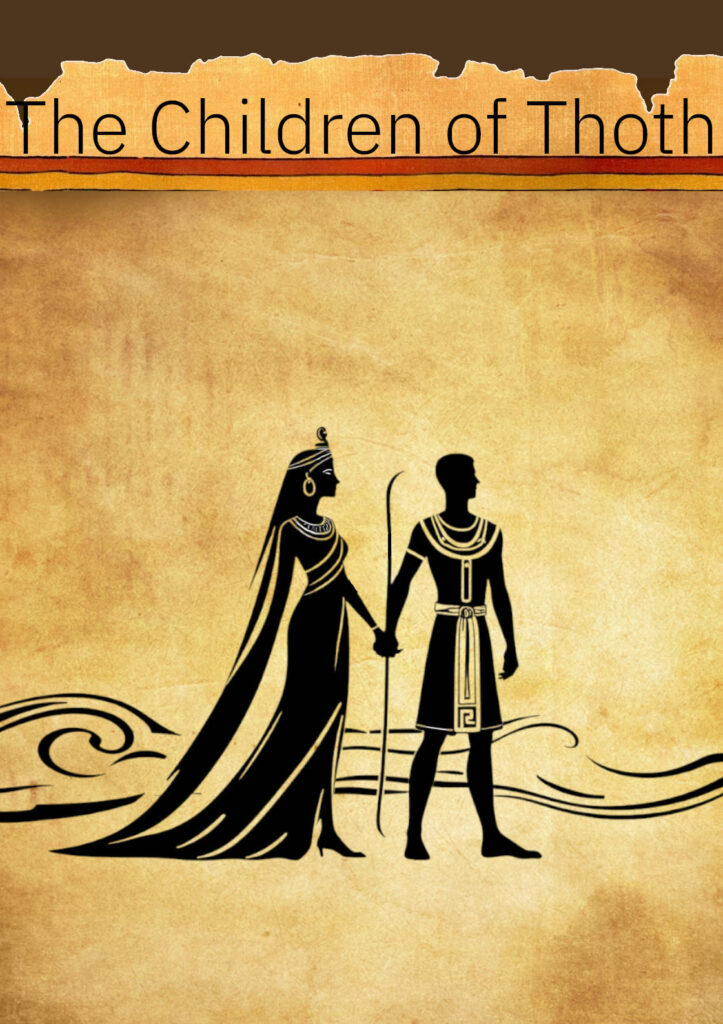

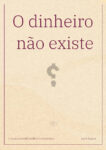
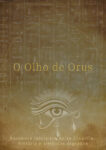
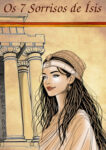
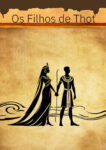
Avaliações
Ainda não existem avaliações.